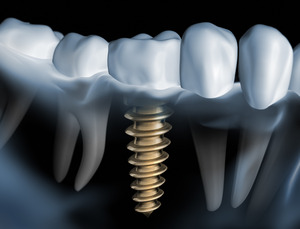
Dental implants are hailed as a revolutionary solution for replacing missing teeth, offering unparalleled aesthetics and functionality. However, as with any dental restoration, questions may arise regarding their susceptibility to common oral issues. In this blog, we’ll explore the intriguing question: Can dental implants get cavities, or are they immune to this dental dilemma?
Understanding Dental Implants
Before delving into whether dental implants can develop cavities, it’s crucial to understand how they differ from natural teeth. Dental implants consist of titanium posts surgically implanted into the jawbone, serving as artificial tooth roots. These posts are topped with prosthetic crowns crafted to resemble natural teeth closely. Unlike natural teeth, dental implants lack enamel, the protective outer layer that shields against cavities. Consequently, one might assume that implants are impervious to decay.
Exploring the Risk of “Implant Cavities”
While dental implants themselves cannot develop cavities, any remaining natural teeth are still susceptible to decay. Poor oral hygiene, inadequate plaque removal, and neglecting regular dental check-ups can lead to gum disease and cavities in adjacent teeth. Furthermore, a condition known as peri-implantitis, characterized by inflammation and infection of the gum tissue around implants, can compromise their stability and longevity if left untreated.
Maintaining Implant Health
Although dental implants may not develop cavities, maintaining optimal oral hygiene is paramount to their long-term success. Brushing twice daily with a soft-bristled brush, flossing between implants and natural teeth, and using antimicrobial mouthwash can help prevent plaque buildup and reduce the risk of gum disease. Additionally, attending regular dental check-ups allows your dentist to monitor the health of your implants and address any issues promptly.
In the debate over whether dental implants can get cavities, the answer is clear: implants themselves are not susceptible to decay. However, maintaining overall oral health remains essential to preserving the integrity of your implants and preventing complications such as gum disease and peri-implantitis. By practicing good oral hygiene habits and seeking professional dental care, you can ensure that your dental implants continue to serve you well for years to come, providing a confident smile and restored functionality.
About the Author
Meet Dr. Paul Samia, the dedicated dentist behind Samia Family Dentistry of Garner, where your smile takes center stage! With a focus on premier dental care and implant treatments, Dr. Samia ensures every patient receives personalized, comfortable care for a lifetime of healthy smiles. His warm demeanor and expertise in specialized treatments, including dental implants, offer a wide array of services to patients and families. Dr. Samia’s journey began with an undergraduate degree from Northeastern State University, followed by dental education at Touro College of Dental Medicine.
If you have any questions about dental implants, he can be reached at his website or by phone at (919) 779-2818.
